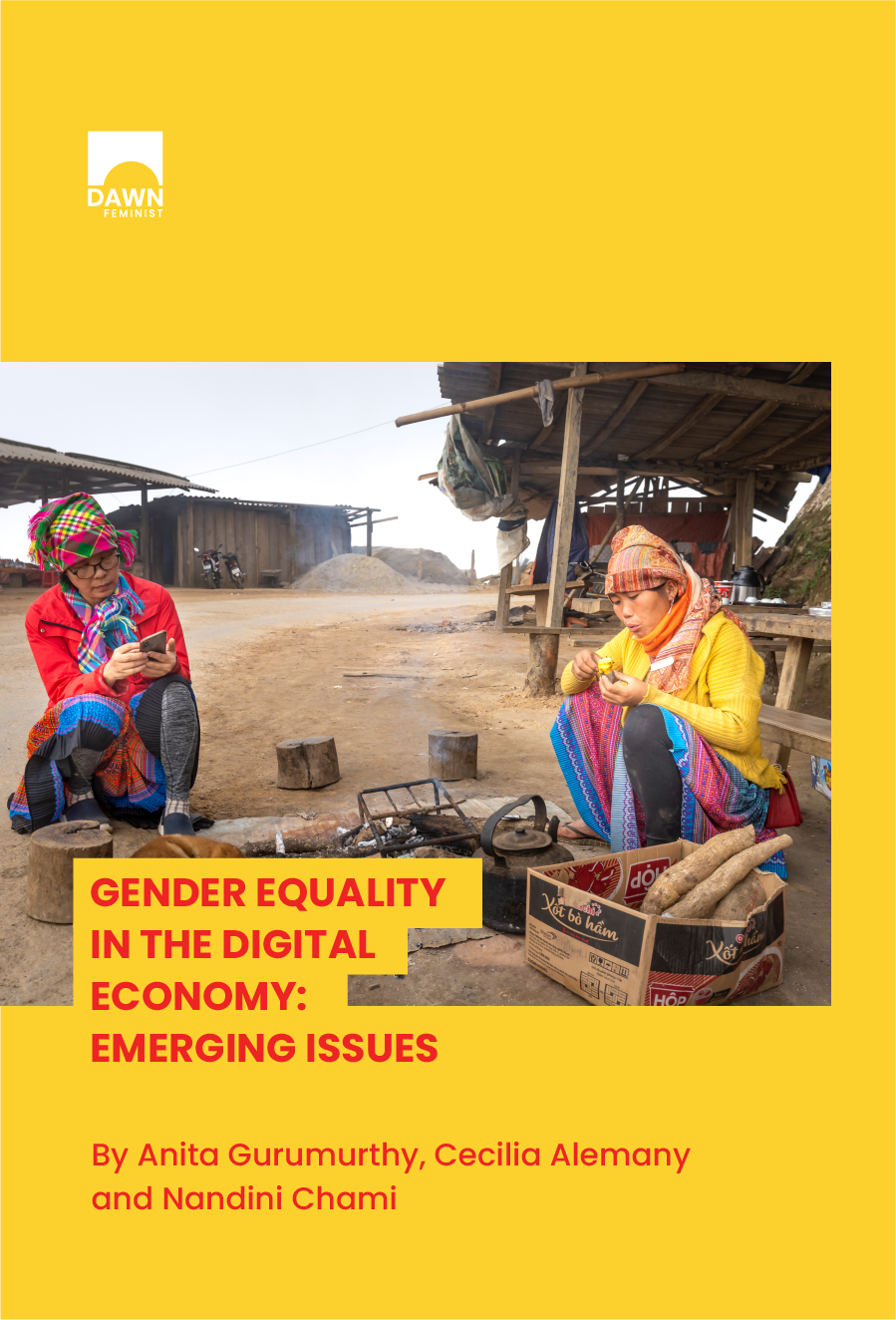Authors: Cecilia Alemany, Nandini Chami, Anita Gurumurthy
The global economy is witness to the rise of platform companies that have emerged as a dominant force controlling marketplace and social interactions. The phenomenon of platformization transforms production, distribution and social reproduction in ways that reinforce the concentration of economic and social power in the hands of digital corporations and countries of the Global North.
In this Uberizing economic terrain, digital platform companies have emerged as neo-feudal overlords profiting from a brutally extractive data regime. Using intelligence harvested from vast and varied data sets as the key driver for locally responsive innovations and targeted marketing, these corporations are able to monopolize markets. In sectors like agriculture, they can create dependencies, locking local livelihood practices of women in the Global South into corporatized supply chains and taking away women’s control over land.
Hard-won gender equality gains in pay and job status are at risk of being reversed by automation-led job displacement in various sectors, even as the welfare state is shrinking. In trade negotiations, the Global North is pushing for e-commerce, arguing that it will open up opportunities for women entrepreneurs from the developing world. This is but a ‘pink herring’ that distracts from the real issues of the gender divide in techno-social capabilities and the wider socio-economic challenges faced by women’s enterprises. The ‘no-governance-is-good- governance’ rhetoric that has gained ascendancy in the discursive arena of the digital also exacerbates the challenges.
Reclaiming digital technologies and framing a feminist development agenda in relation to the post-human context is an urgent task. Given this imperative, the paper outlines a strategic road map focusing on new legal-institutional frameworks and data governance models to both counter data extractivism and women’s exploitation and envision alternative data-based development approaches that work for women from the South. The hope is that actions along these two lines can help us carve out a new global social contract for the digital economy, founded upon feminist ethics.
This paper is part of the Digital Justice Project and can be viewed online here: https://itforchange.net/digital-justice-project/issue-paper-1/
It is also available in Spanish and French:

